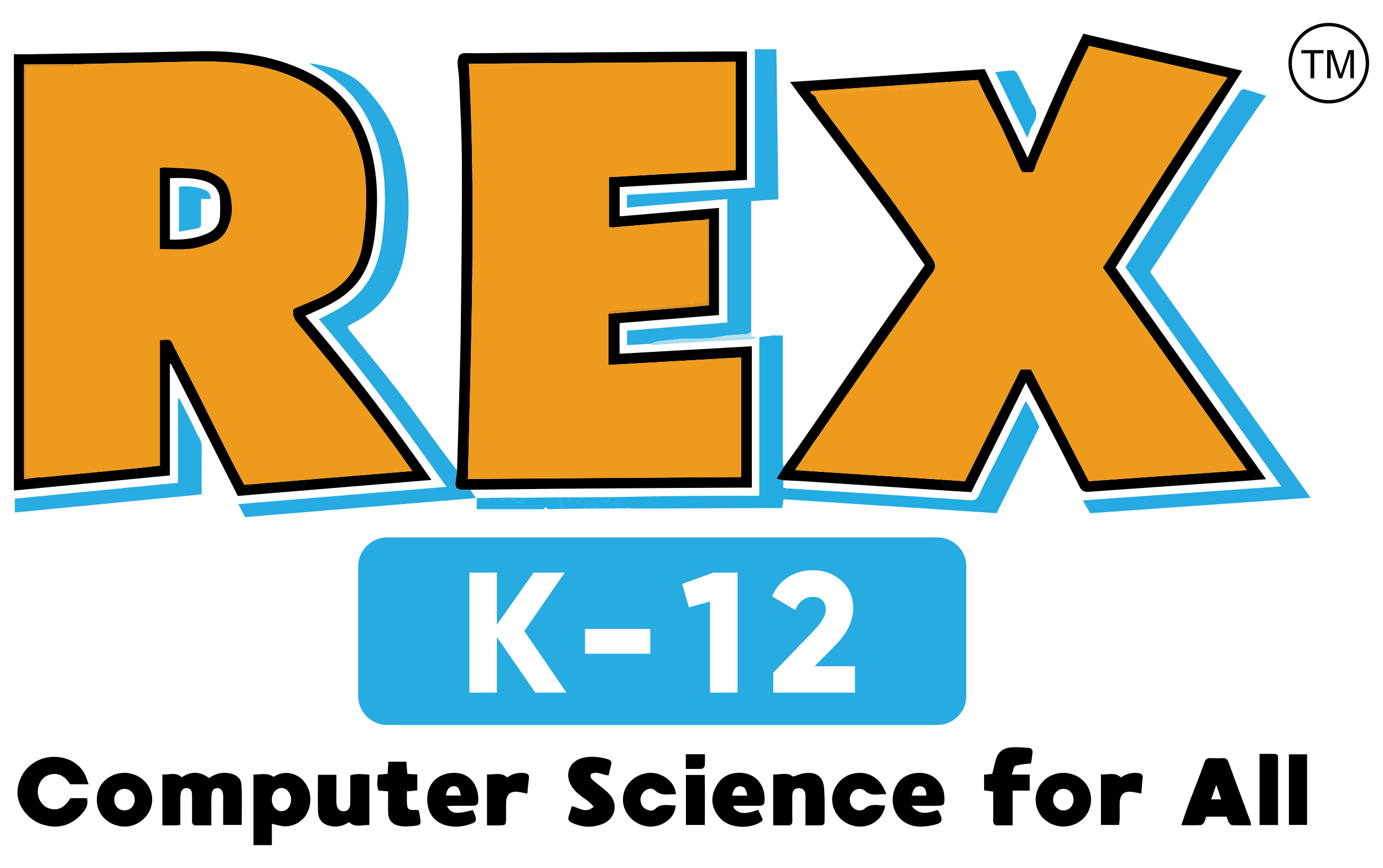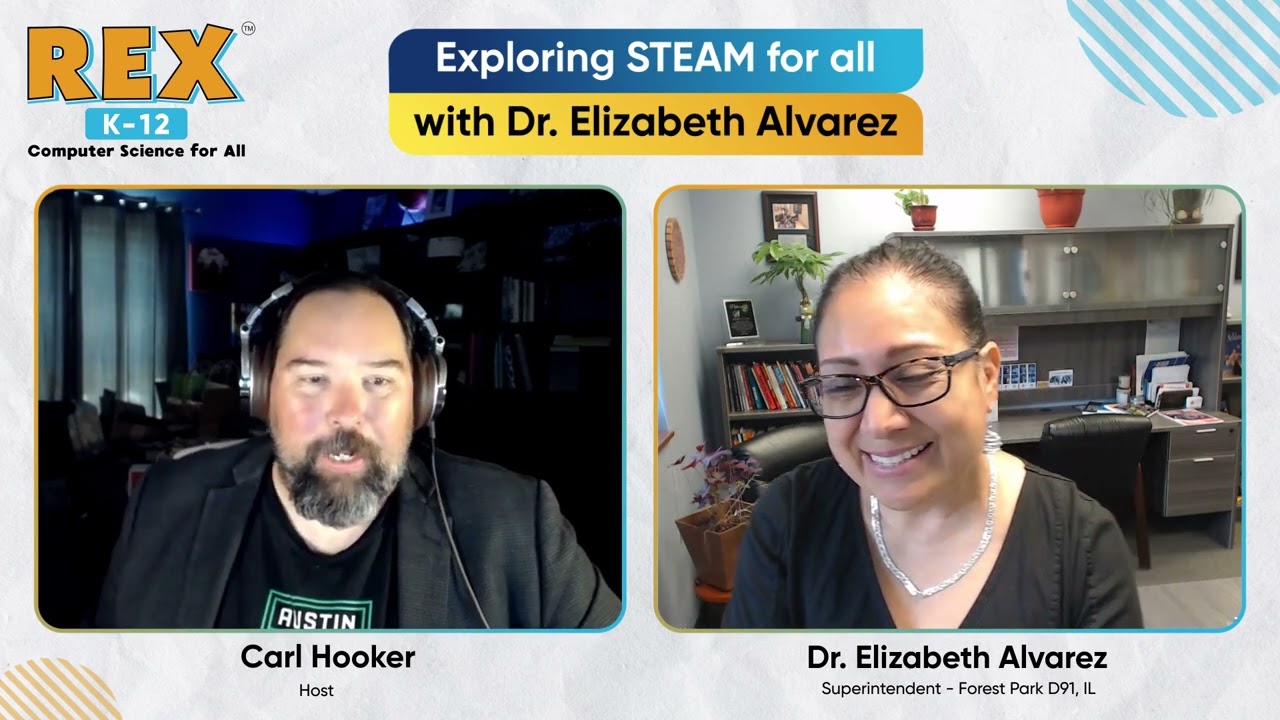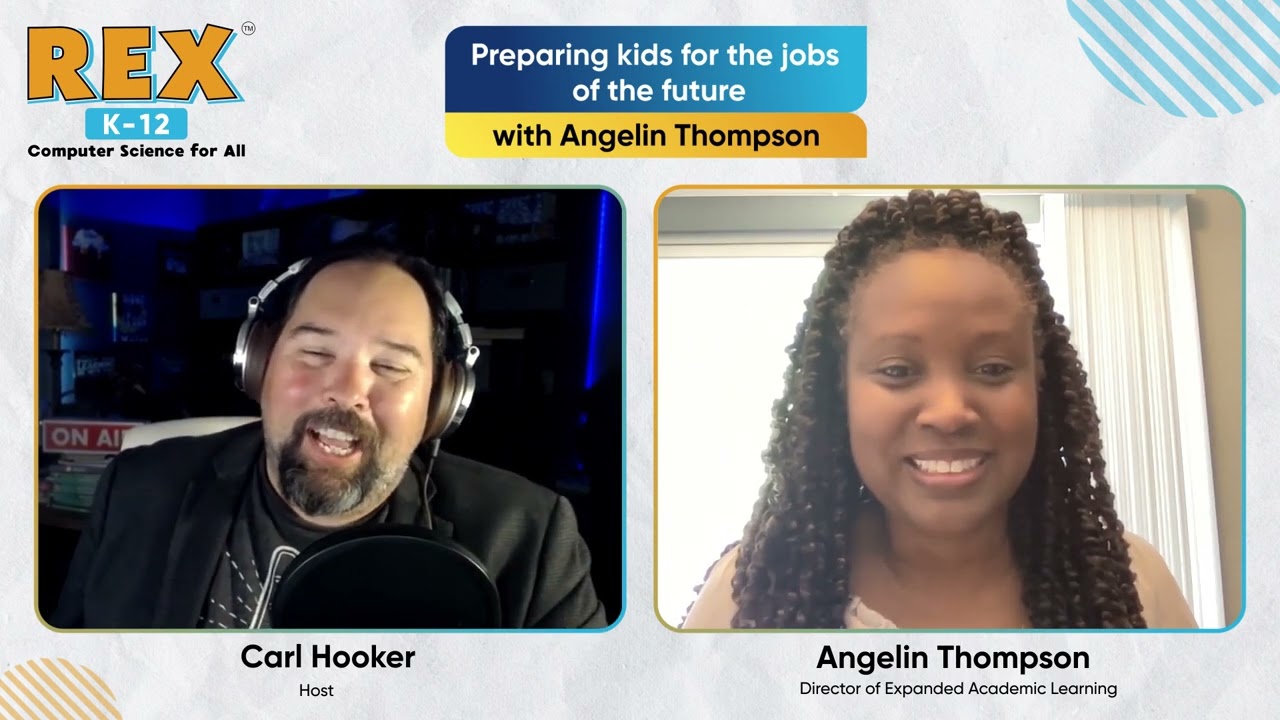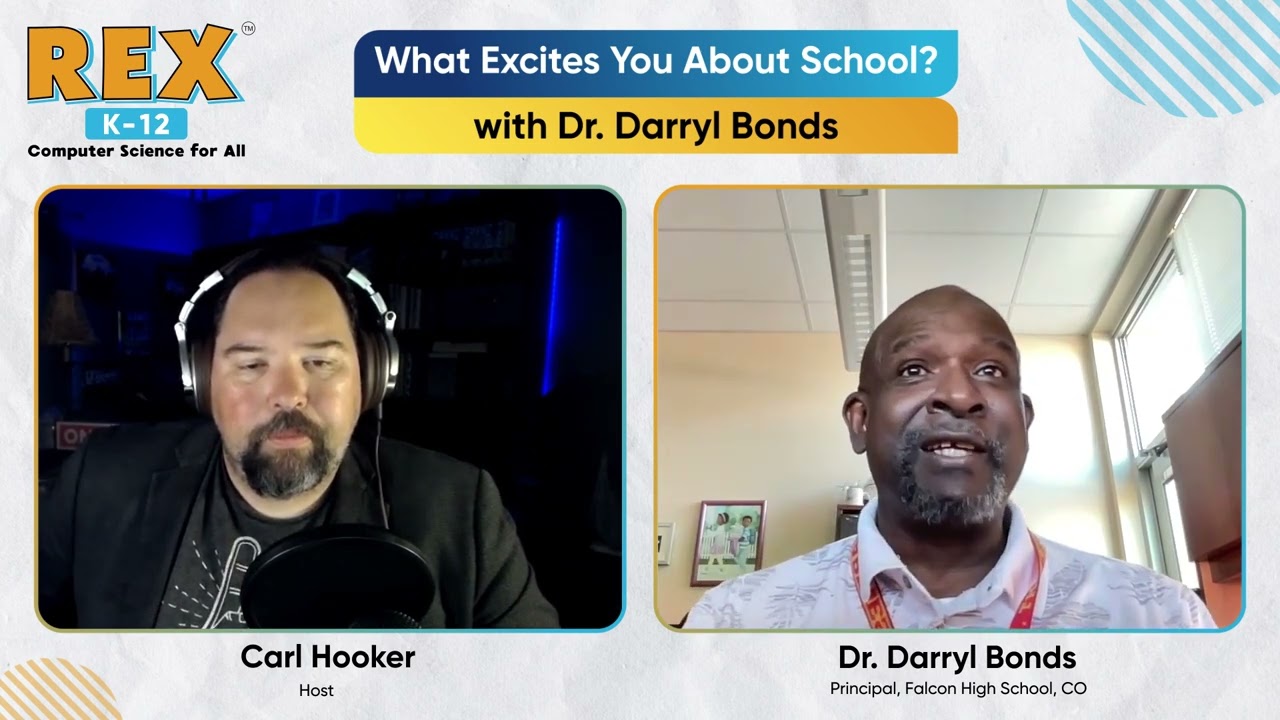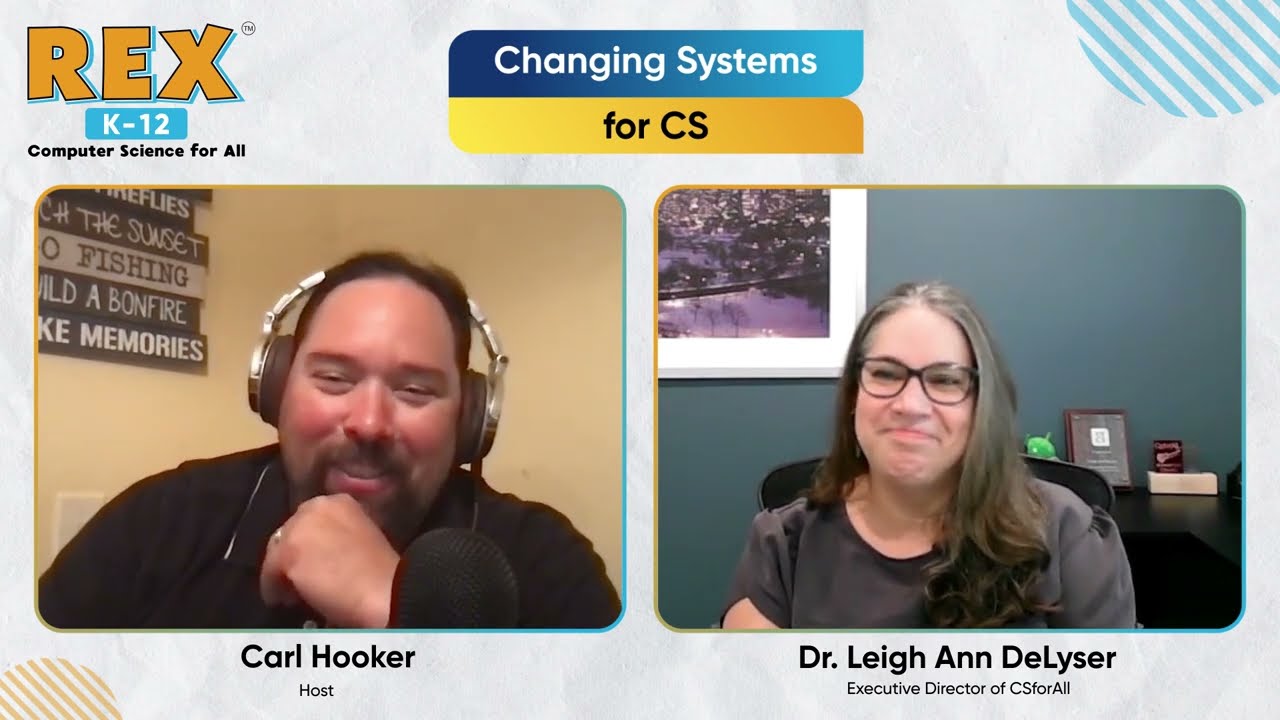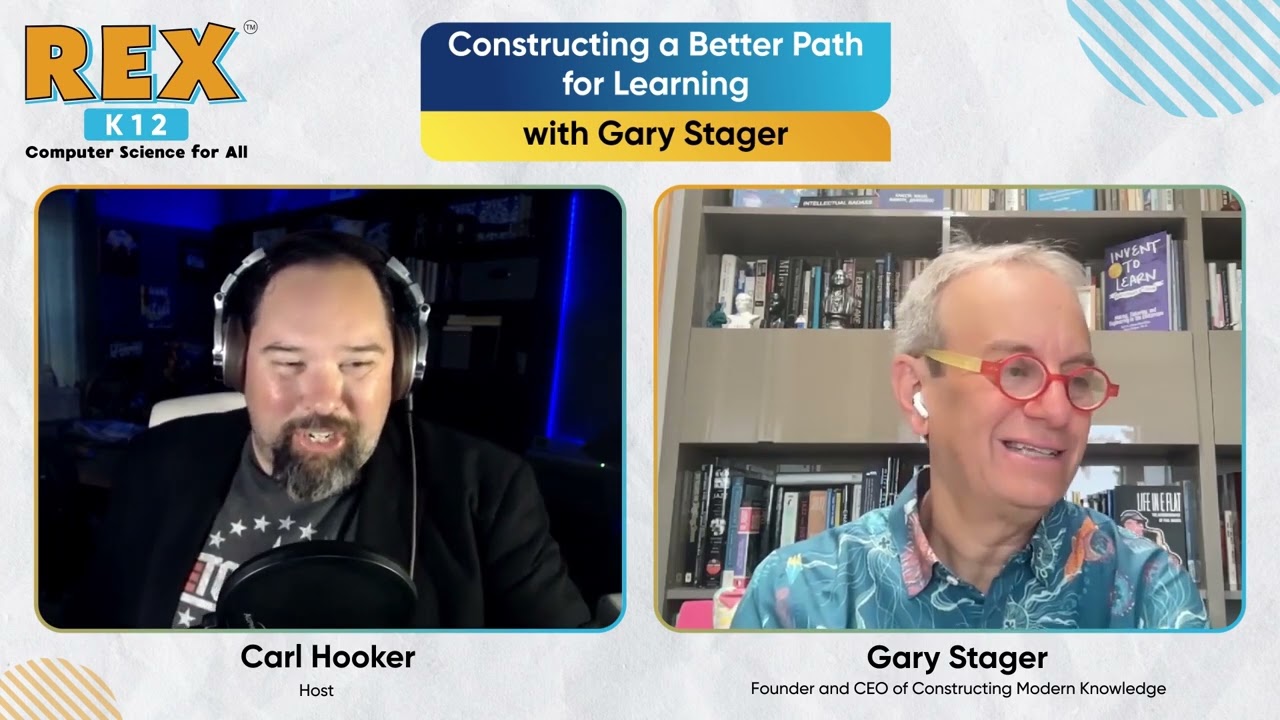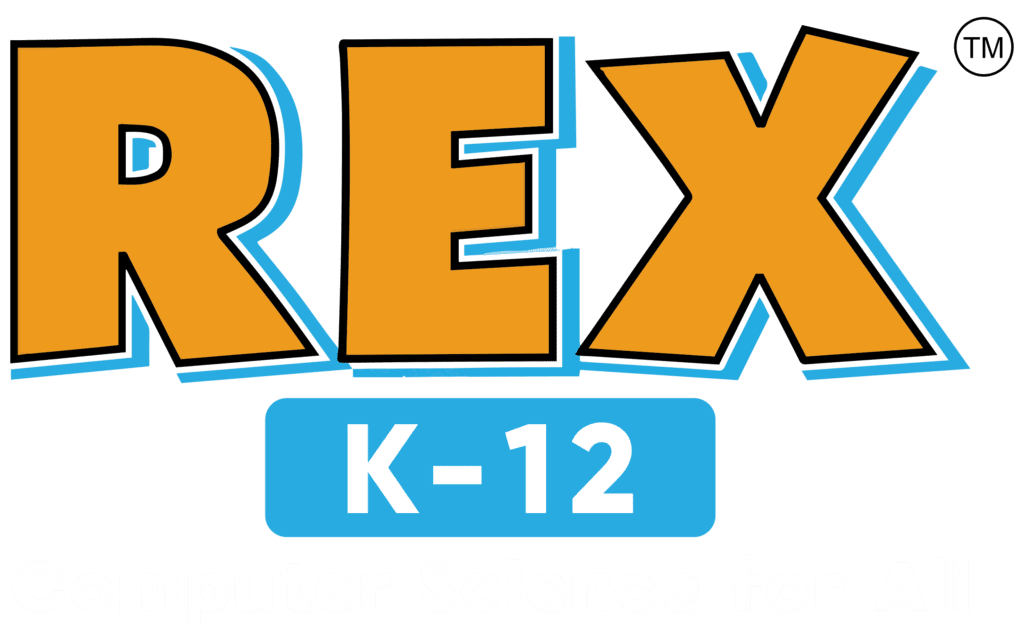In this episode of Let’s Talk CS, we meet with super computer science teacher Bryan Zevotek about empowering students to take own their learning when it comes to computer science. We talk about the impact of trying new things in front of students and the power of taking risks and failing with students.
Igniting a Passion for Computer Science: Insights from Brian Zavotec
Introduction:
Computer science is a dynamic and ever-evolving field that holds immense potential for students’ future success. In our quest to explore innovative approaches to computer science education, we had the pleasure of diving into the world of K-12 STEM education with Brian Zavotec, a passionate and experienced computer science educator. In this blog post, we’ll delve deeper into Brian’s journey, teaching methods, and valuable insights, unraveling the secrets behind his ability to ignite a passion for computer science in his students. Join us as we explore Brian’s inspiring approach to fostering creativity, embracing failure, tackling challenges, and leveraging artificial intelligence (AI) in the classroom.
Unleashing Creativity and Experiential Learning:
Brian’s teaching philosophy centers around providing students with the tools and opportunities to unleash their creativity through experiential learning. He firmly believes that computer science is not just about coding, but also about exploration and creation. Brian developed a student-driven elective that placed learners at the forefront of their educational journey. By shifting the focus away from grades and prioritizing fun, hands-on projects, he witnessed a remarkable transformation in his students’ engagement and enthusiasm. From designing and programming LEGO Mars Rovers to developing interactive video games using Scratch, his students were immersed in a world where their imagination was the only limit.
Embracing Failure and Learning from Mistakes:
One of the core tenets of Brian’s teaching philosophy is the acceptance and encouragement of failure as an essential part of the learning process. He views failure not as a setback, but as an opportunity for growth and improvement. By fostering an environment where mistakes are celebrated and seen as stepping stones towards success, Brian empowers his students to become resilient problem solvers. Through his own willingness to try new things, even without prior expertise, Brian serves as a role model for lifelong learning and a growth mindset. This approach not only nurtures students’ curiosity but also instills in them the confidence to tackle challenges head-on.
Addressing Challenges in Computer Science Education:
During our conversation, Brian shed light on some of the challenges faced in computer science education. One significant obstacle is the scarcity of certified computer science teachers. Despite the increasing demand for computer science education, there is a shortage of qualified educators. Brian emphasized the urgent need for educational institutions to bridge this gap by offering comprehensive certification programs that equip teachers with the skills and knowledge required to effectively teach computer science. Without proper training opportunities, schools may struggle to integrate computer science seamlessly into their curriculum, hindering students’ access to this essential subject.
The Power of Artificial Intelligence in Education:
As we explored the intersection of technology and education, Brian shared his experiences leveraging artificial intelligence (AI) tools to enhance student learning. AI-powered platforms, such as ChatGPT, have become valuable resources for educators. Brian described how these tools can generate engaging content, provide personalized feedback, and spark students’ creativity. By integrating AI technologies, Brian found innovative ways to facilitate storytelling, encourage critical thinking, and foster collaboration among students. The ability of AI to adapt to individual learning styles and offer immediate feedback opens up new possibilities for personalized instruction, ensuring that each student can maximize their potential in computer science and beyond.
Conclusion:
Our conversation with Brian Zavotec provided a deep understanding of the transformative power of computer science education. Through his student-centered approach, emphasis on experiential learning, and the encouragement of failure, Brian has cultivated a thriving community of young computer scientists. As educators and school leaders, we must draw inspiration from Brian’s experiences and strive to create dynamic, inclusive, and hands-on learning environments that ignite a passion for computer science in our students. By harnessing the potential of AI and addressing the challenges faced in the field, we can equip the next generation with the skills and knowledge they need to thrive in the digital age and shape a future driven by innovation and creativity.
